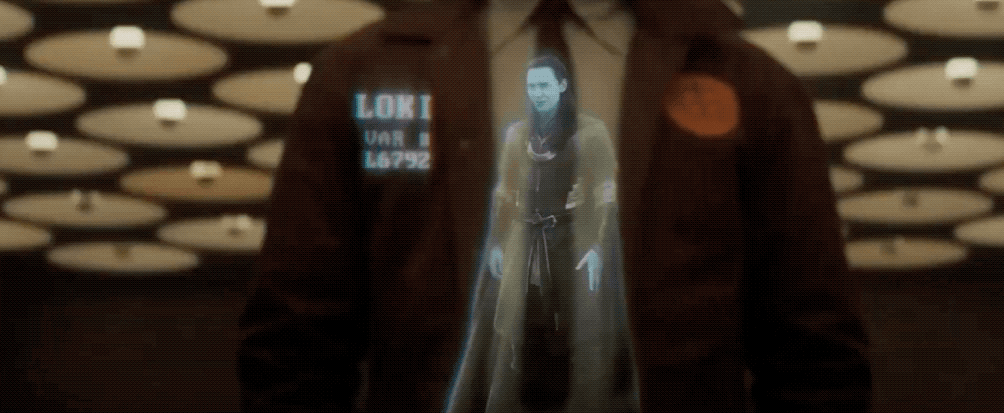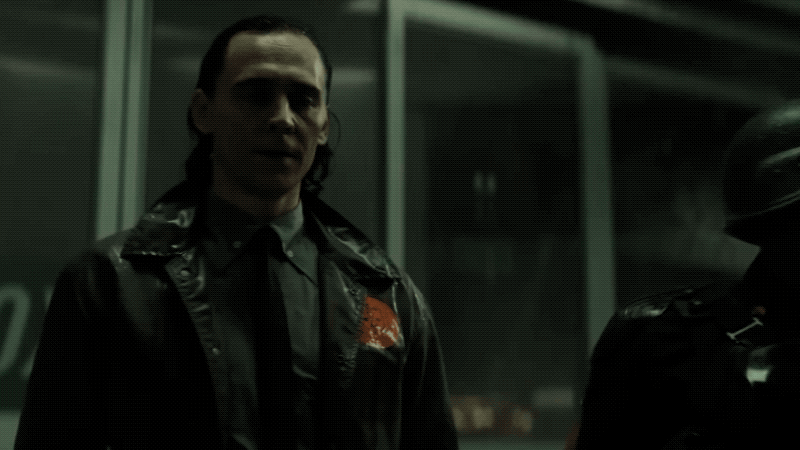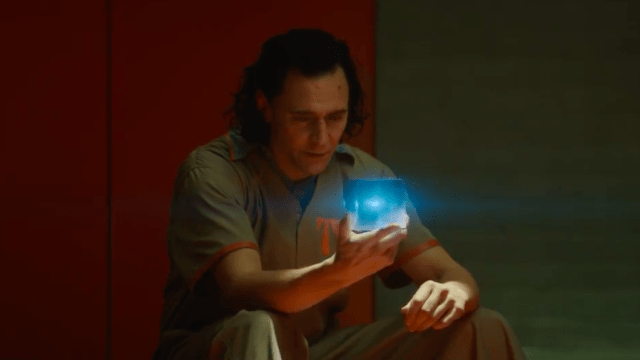In each of Marvel’s films that Loki’s appeared in, the Asgardian trickster god’s gotten into all sorts of chaotic mischief using his intellect and an array of ill-defined mystical powers that allow him to conjure illusions. Though Loki’s copies have typically been convincing enough to give him enough time to run away from danger or whip out his favourite pair of knives like a stage magician, Marvel’s films have glossed over how exactly Odin and Frigga’s youngest son’s magic works.

After years of people using Arthur C. Clarke’s famous quote (featured in the first Thor movie) to explain the MCU’s supernatural occurrences away, Loki’s second episode, “The Variant,” acknowledges how the franchise’s ideas about magic have evolved significantly post-Doctor Strange and WandaVision. As “The Variant” dives deeper into Loki’s story about how Marvel’s multiverse was (the past tense is important here) a far messier place than anyone previously knew, Loki comes to understand that he’s not quite as unique as he likes to fancy himself.
When the TVA is alerted to the onset of another Nexus Event that could destroy the Sacred Timeline if left unchecked, Loki joins Mobius M. Mobius (Owen Wilson), Hunter B-15 (Wunmi Mosaku), and a group of other TVA agents for a briefing about the Variant behind all the trouble. The final scene of Loki’s first episode established that an alternate version of Loki is the season’s big bad who’s been giving the TVA grief. “The Variant” builds on this idea, though, by revealing the many Variant Lokis the TVA’s apprehended at various Nexus Events that nearly caused the Sacred Timeline to split and branch off, creating the kind of multiverse that might lead to a descent into universal madness. As Mobius explains what sort of threat they’re dealing with, he pulls up a device that displays a number of alternate versions of Loki known to have existed.

Mobius explains that while all of the Loki Variants have different appearances, there are more than a handful of personality traits and style choices they all have in common with the Loki first introduced in the films. Bemused as Loki is to see “himself” as a hulking monster in one instance and some sort of professional cyclist in another, what gives him pause is the way that Mobius conflates “illusion projection” and “duplication casting” while describing the Lokis’ general power set. Unlike certain Marvel characters with physical duplicative powers, the copies that Loki typically creates in the MCU have all been magical holograms whose falseness only becomes clear when people attempt to engage with them.
Visually, this power’s always read like Loki projecting illusory dupes of himself by casting nonverbal spells, indicating that even if there is a substantial difference between illusion projection and duplication casting, he mostly uses them interchangeably to achieve the same effect. Nitpicking about this perceived difference is important to Loki in “The Variant,” presumably because it’s his way of asserting that he knows more about himself than the TVA ever could even with all the resources at its disposal. But in addition to some adding interesting character colour, this moment in “The Variant” can also be interpreted as Loki’s way of further building out the fine details of the MCU’s expanding concept of magic.
When you look back at everything that Loki’s done in Marvel’s films, one of the interesting things to pay attention to is how much he’s able to accomplish using his duplication/illusion trick — seemingly one of the only spells he knows or is prone to using on the fly. This isn’t to diminish the scale of Loki’s universe-conquering endeavours, which he comes close to accomplishing with the help of having the the Mind Stone for some time at one point, but rather to highlight that for as much bragging as Loki does, he really seems to like leaning on that one bit — the magical equivalent of going “ha, sike!”

In WandaVision’s penultimate episode, “Previously On,” Agatha Harkness tries to explain to Wanda how unbelievable her newfound powers are by demonstrating more basic versions of the spells Wanda was able to unconsciously cast upon the entire town of Westview. The feats of transmutation, telepathy, and telekinesis Agnes demonstrates are all things that Wanda herself could do and maintain without thinking, whereas it took Agatha years to learn how to pull them off on a much smaller scale with much more effort.
Illusions like Loki’s feel very much like they’re a part of this same set of magical skills that can be cultivated in any person born with an innate talent for the craft. But the way Loki’s powers have been depicted, and the way Loki gets his hackles up about them in “The Variant,” suggest that illusion-related sorcery’s where Loki’s most comfortable, and the fact that he’s an Asgardian god doesn’t necessarily mean that he’s quite the expansively accomplished magic user he makes himself out to be. Loki’s mind, rather than his raw magical power, has always been what made him a formidable and wily adversary to the Avengers, and why the TVA’s begrudgingly begun working with him to hunt the Variant Lokis down.
Minuscule as this most recent episode’s mention of magic was, it, along with Loki’s many allusions to the gravity of a multiversal collapse, definitely raises the question of whether Loki might somehow find his way into Doctor Strange in the Multiverse of Madness after this. Loki-brand parlor tricks gone awry certainly sound like the sort of nonsense that could lead to a mini-Avengers reunion on the big screen. But as the rest of Loki’s season unfolds, it’s just as possible that Loki really could end up becoming the hero his series wants him to be as he discovers what fate his in store for him.
Loki is now streaming on Disney+.
